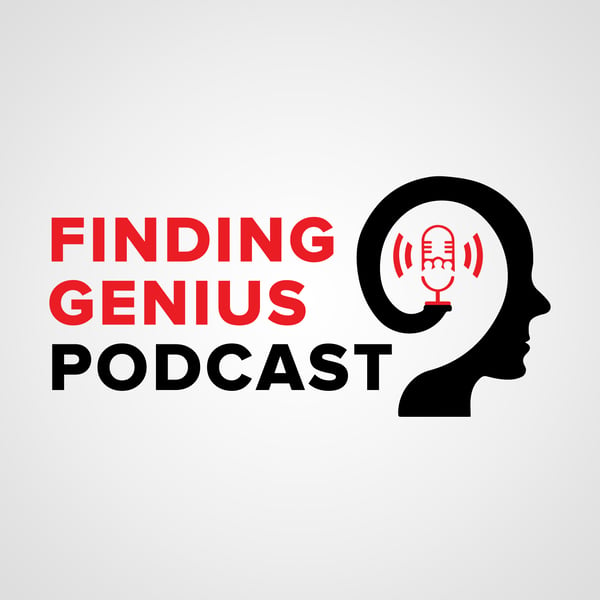Cognition as a Necessary Part of Biological Function: Moving Back, to Before the Human-Centric View
Finding Genius Podcast
Richard Jacobs
4.4 • 1K Ratings
🗓️ 22 April 2021
⏱️ 39 minutes
🧾️ Download transcript
Summary
“…Science progresses one funeral at a time, and…in another 10 to 20 years, people will look back on this time…and say, what were they thinking?”
So, what ideas will be in the next coffin of science?
Tune in for a compelling answer, and to learn:
- How the historical periods before and after behaviorism differ greatly, and impact the way we view cognition today
- How and where an understanding of cognition and cancer overlap
- To what degree an individual cell has freedom in decision-making
Dr. Pamela Lyon is a visiting research fellow at Southgate Institute for Health, Society and Equity in Adelaide, Australia. Her research into this topic began as a result of a cross-cultural comparison of philosophical propositions grounded in accounts of the mind.
Much to her surprise, she discovered that in western cognitive science, cognition has been relegated to the realm of the human brain and machinery (robots, missiles, etc.), without any attention given to the idea of cognition as integral to all biological function.
In order for a biological system to persist, it must accomplish so many tasks in terms of physics, chemistry, and its interactions with the environment; it must exchange matter and energy, sense, remember, learn, make decisions in the face of uncertainty and conflicting messages, and value experiences as ‘good’ or ‘bad.’ All of these are cognitive functions.
“The view I came to is that you can’t stay alive and do what we do in being alive without cognition,” says Lyon, before explaining the history of this view since it emerged around the time of Darwin.
How did we get to the state we’re in today? What choices have been made about the characterization of cognition, and why?
Lyon explores her viewpoint with listeners, revitalizing an old yet very pragmatic understanding of all life on Earth.
Press play for the details of this and more.
Episode also available on Apple Podcasts: apple.co/30PvU9C
Transcript
Click on a timestamp to play from that location
| 0:00.0 | Forget frequently asked questions. |
| 0:02.0 | Common sense, common knowledge, or Google. |
| 0:05.0 | How about advice from a real genius? |
| 0:07.0 | 95% of people in any profession are good enough to be qualified in license. |
| 0:11.0 | 5%? |
| 0:12.0 | Go above and beyond. |
| 0:13.0 | They become very good at what they do. |
| 0:15.0 | But only 0.1% are real geniuses. |
| 0:18.0 | Richard Jacobs has made his life's mission to find them for you. |
| 0:22.0 | He hunts down and interviews geniuses in every field. |
| 0:25.0 | Sleep science, cancer, stem cells, ketogenic diets, and more. |
| 0:29.0 | Come the geniuses. |
| 0:30.0 | This is the Finding Genius Podcast. |
| 0:33.0 | The Richard Jacobs. |
| 0:36.0 | Quick note before we begin. |
| 0:39.0 | The Finding Genius Foundation, as part of the Finding Genius Podcast, |
| 0:42.0 | has recently completed a book about understanding viruses. |
| 0:46.0 | So the creation of this book was to interview 100 virologists, |
| 0:50.0 | ask them a lot of deep difficult questions, take the most difficult questions, |
| 0:54.0 | and then re-interview the top 25 or so, |
| 0:57.0 | and ask them the hardest questions I could think of. |
| 1:00.0 | And we compile that all into a book. |
... |
Please login to see the full transcript.
Disclaimer: The podcast and artwork embedded on this page are from Richard Jacobs, and are the property of its owner and not affiliated with or endorsed by Tapesearch.
Generated transcripts are the property of Richard Jacobs and are distributed freely under the Fair Use doctrine. Transcripts generated by Tapesearch are not guaranteed to be accurate.
Copyright © Tapesearch 2025.

